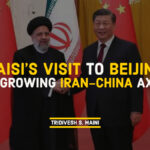While healthy competition between states is a welcome trend, it is also important to emulate each other’s successes. States which share contiguous borders with each other will also need to cooperate where necessary in the future – big projects may be spread across states. Apart from this, each state possesses its unique strengths and growth and development can be symbiotic and need not be looked at from a zero-sum perspective.
Recently, the Karnataka Government stopped land acquisition for a Defence and Aerospace park in Devanahalli (not very far from Bengaluru). Protests against land acquisition for this project have been ongoing for over three years. During a meeting with farmers’ groups and activists, the state’s Chief Minister – Siddaramaia said: “….Land will be acquired only from those who voluntarily come forward, and they will be provided better compensation and more developed land parcels.”
The Karnataka CM stated that while this was a very important project, the sensitivities of farmers in the southern Indian state could not be ignored. Karnataka is a leader in the aerospace and defence sector and contributes nearly two-third of the country’s output in these sectors. In 2023, the state set a target to further increase its defence exports. The state is home to an aerospace park in Devanahalli (near the Kempegowda International Airport, which serves Bengaluru).
AP’s attempt at wooing investors
In May 2025, the Andhra Pradesh CM Chandrababu Naidu, during a meeting with Defence Minister Rajnath Singh, had suggested that Lepakshi (Anantpur district) in Andhra Pradesh had immense potential and that there was 10,000 acres of land available in the Lepakshi-Madakasira hub. Many construed this as an attempt by Naidu to get HAL to relocate. Later, Naidu denied this, saying that an important project like HAL could not be shifted and that he did not support the “relocation” of any project from one region to another.
Also Read: Barak Valley Uprising in 1960s: Lessons for Handling Diversity & Linguistic Differences in India
Senior officials of the Karnataka government emphatically stated that they would not allow the relocation of HAL or any other important projects. Reacting to Naidu’s statement, Karnataka’s Deputy Chief Minister, DK Shivkumar, pointed to the research ecosystem of the Southern Indian state. He also said: “….whatever we consider an asset to our state, and what has existed here from the beginning, our government will not let go of it at any cost. It is a matter of self-respect. We will ensure it stays with us.”
Earlier this month, Andhra Pradesh IT Minister, Lokesh Nara (also the son of Naidu) said: “Dear Aerospace industry, sorry to hear about this. I have a better idea for you. Why don’t you look at Andhra Pradesh instead? We have an attractive aerospace policy for you, with best-in-class incentives and over 8000 acres of ready-to-use land (just outside Bengaluru)! Hope to see you soon to talk across the table.”
While BJP MP, from Karnataka, Tejasvi Surya praised Lokesh’s statement in a social media post (which he later deleted), the Andhra IT Minister drew the ire of farmers’ unions of his state for his remarks.
Other reasons why neighbouring South Indian states are stepping in to woo investors
In recent years, several IT companies in Karnataka have also been complaining about the crumbling infrastructure in Bengaluru. Several South Indian states, while alluding to opposition to Hindi in Karnataka, have also been trying to attract investors by sending out a message that they are not opposed to any language. Both the Andhra CM and IT Minister have stated that there is no harm in learning Hindi (though these comments have sparked their share of controversy).
Lokesh Nara, while trying to woo investors, highlighted the point. In a comment on July 21, 2025 on X , he said: “:..Development is the only language here. Everyone who speaks this language is welcome in AP. “
He had earlier reached out to Mahindra Group Chairman Anand Mahindra to invest in AP.
Former Telangana CM Chandrashekhar Rao’s son KT Rama Rao, as IT Minister, had also played a very proactive role in drawing investments
Competition between states is a positive trend. Post the 1991 economic reforms and the IT revolution in the late 1990’s states had been competing with each other for drawing investments from India and overseas. Naidu, then CM of United Andhra, was the most proactive CM and had played a key role in getting investments from big names like Microsoft to Hyderabad (now capital of Telangana). In recent years, several states have been hosting Investor Summits with an eye on attracting investors.
While healthy competition between states is a welcome trend, it is also important to emulate each other’s successes. States which share contiguous borders with each other will also need to cooperate where necessary in the future – big projects may be spread across states. Apart from this, each state possesses its unique strengths and growth and development can be symbiotic and need not be looked at from a zero-sum perspective. It is also important for economic growth within the country and the states to be less disparate.
Disclaimer: The views expressed in this article are of the author solely. TheRise.co.in neither endorses nor is responsible for them. Reproducing this content without permission is prohibited.
About the author
Tridivesh Singh Maini is a New Delhi-based Policy Analyst. He is faculty member of OP Jindal Global University, Sonepat, Haryana.






































































































